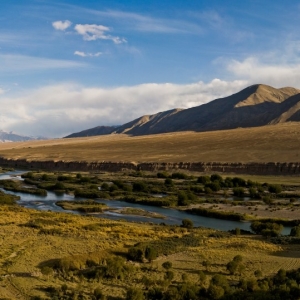The Stream, March 1: Tidal Flooding Cuts Billions of Dollars from U.S. Property Values
The Global Rundown
Rising seas and more frequent floods during high tide are reducing home values along the U.S. Atlantic and Gulf coasts. The leader of Canada’s Assembly of First Nations calls for investment in water infrastructure and new national laws to secure safe water for indigenous communities. After a series of storms, California’s snowpack is significantly above average, while the big municipal water supplier in Southern California offers to contribute more water to the Colorado River drought plan. The U.N. requests emergency drought aid for Zimbabwe.
“The situations many First Nations are facing would not be tolerated anywhere else in this country. First Nations have the solutions and the work over the next three days will help guide the work that lies ahead.” — Perry Bellegarde, Assembly of First Nations national chief, addressing a national symposium that focuses on indigenous water issues. Water Canada
“The sustainability of the entire American Southwest is at stake here, so this is in the national interest. I suspect we’re going to need significant funding.” — Jeffrey Kightlinger, general manager of Metropolitan Water District, talking about ensuring water availability for the Colorado River basin over the next 50 to 100 years. Desert Sun
By the Numbers
153 percent: Size of California’s Sierra Nevada snowpack compared to average. A series of storms in recent weeks has swelled snow reserves, but also caused flooding north of the Bay Area. Associated Press
$234 million: Emergency aid that the U.N. is requesting for Zimbabwe to help with drought response. Farm groups say that the maize harvest could drop 40 percent this year. Reuters
Science, Studies, and Reports
Increased tidal flooding from 2005 to 2017 in mid-Atlantic states resulted in coastal home prices rising more slowly than similar properties that were not affected by periodic floods. In Delaware, Maryland, and Pennsylvania that loss of value amounted to more than $860 million, according to an analysis from First Street Foundation, a nonprofit group, and Columbia University. The researchers reckon that the increase in high-tide floods due to sea level rise has wiped out $15.8 billion in property value in 17 states from Maine to Mississippi. CBS News
On the Radar
A regional water wholesaler that provides water to Southern California cities has stepped in with an offer to break gridlock on complex Colorado River basin negotiations that are meant to slow the decline of Lake Mead. The Metropolitan Water District proposes to leave additional water in the keystone reservoir, a move that would potentially clear a final hurdle for a basin-wide deal. That hurdle is the Imperial Irrigation District, which is withholding its consent to water conservation measures until it receives $200 million to address ecosystem damage at the Salton Sea, which is also shrinking. Metropolitan’s proposal would cover both its obligations under the drought plan and Imperial’s. Desert Sun
Brett writes about agriculture, energy, infrastructure, and the politics and economics of water in the United States. He also writes the Federal Water Tap, Circle of Blue’s weekly digest of U.S. government water news. He is the winner of two Society of Environmental Journalists reporting awards, one of the top honors in American environmental journalism: first place for explanatory reporting for a series on septic system pollution in the United States(2016) and third place for beat reporting in a small market (2014). He received the Sierra Club’s Distinguished Service Award in 2018. Brett lives in Seattle, where he hikes the mountains and bakes pies. Contact Brett Walton








Leave a Reply
Want to join the discussion?Feel free to contribute!